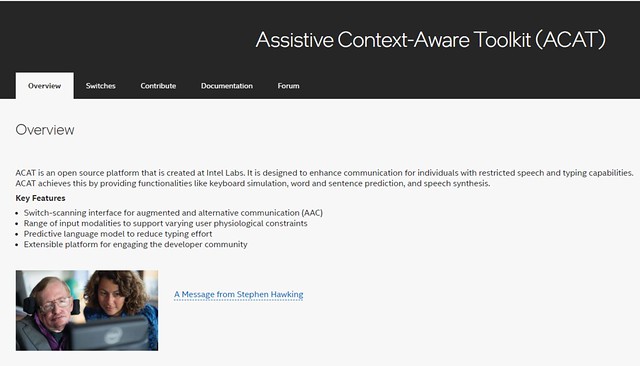Intel ACAT adds support for BCIs
ACAT is an open source platform that is created at Intel Labs. It is designed to enhance communication for individuals with restricted speech and typing capabilities. ACAT achieves this by providing functionalities like keyboard simulation, word and sentence prediction, and speech synthesis.
Key Features:
- Switch-scanning interface for augmented and alternative communication (AAC)
- Range of input modalities to support varying user physiological constraints
- Predictive language model to reduce typing effort
- Extensible platform for engaging the developer community
ACAT was originally developed by researchers in Intel Labs for Professor Stephen Hawking. Professor Hawking was instrumental to the design process and was a key contributor to the project design and validation. After Intel deployed the system to Professor Hawking, Intel turned its attention to the larger community and continued to make ACAT more configurable to support a larger set of users.
Suport for BCIs and BrainFlow
ACAT 3.0 is released and it adds support for BCI devices. As of right now, it works only for some OpenBCI boards, but with relatively minor changes in the code, it should be possible to extend the application with other BrainFlow supported devices.
